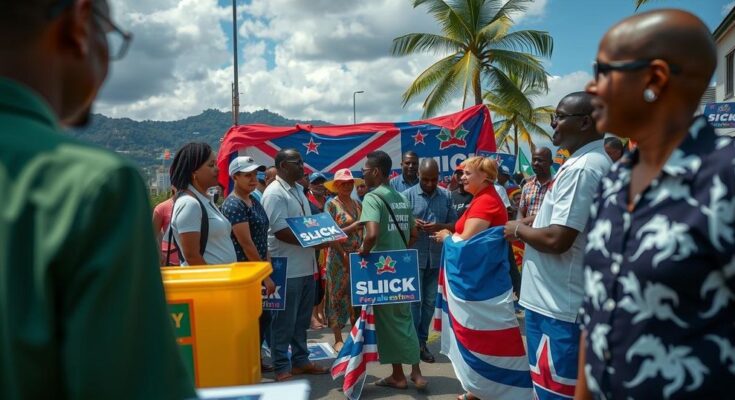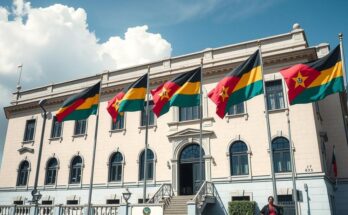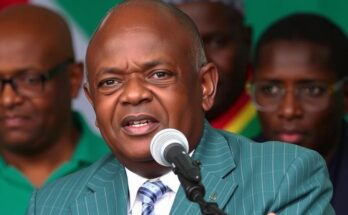Mauritius conducted elections on November 10, 2024, as Prime Minister Pravind Jugnauth’s ruling party seeks re-election amid criticism over censorship issues. Over 1 million voters participated in electing representatives for 62 parliamentary seats, with significant challenges from the opposition led by Navin Ramgoolam. The elections highlight Mauritius’s stability and economic achievements amidst recent political developments.
Mauritius held an election on November 10, 2024, as the ruling party aimed to secure a second five-year term for Prime Minister Pravind Jugnauth. Voter turnout reflected strong civic engagement, with over 1 million registered participants casting their ballots for 62 parliamentary seats. The election occurred in the context of scrutiny over the government’s recent actions, including a temporary ban on social media imposed after a controversial wiretapping scandal. Opposition leader Navin Ramgoolam’s Alliance for Change represents the primary challenge to Jugnauth’s Militant Socialist Movement, which previously secured a majority in 2019. Historically, Mauritius has demonstrated stable democratic governance and economic vitality, primarily supported by finance, tourism, and agriculture.
Mauritius is an island nation situated approximately 2,000 kilometers off the eastern coast of Africa, known for its political stability and well-functioning democracy. Since gaining independence from Britain in 1968, it has conducted regular elections, with this being the 12th installment. The island demonstrates a strong economy, standing as a model for sub-Saharan development, ranking second in Africa on the Human Development Index. The World Bank has noted Mauritius’s impressive economic growth, particularly its prowess in the tourism sector, which, however, faced setbacks during the COVID-19 pandemic.
The recent elections in Mauritius signify a significant moment for the country as voters consider the future leadership amidst recent governmental controversies. With a competitive political climate marked by the ruling party’s ambitions for continuity and the opposition’s push for change, the results of this election are crucial for the nation’s governance and social discourse moving forward. The outcome will not only impact domestic policies but could also influence the perception of Mauritius on the global stage.
Original Source: apnews.com




